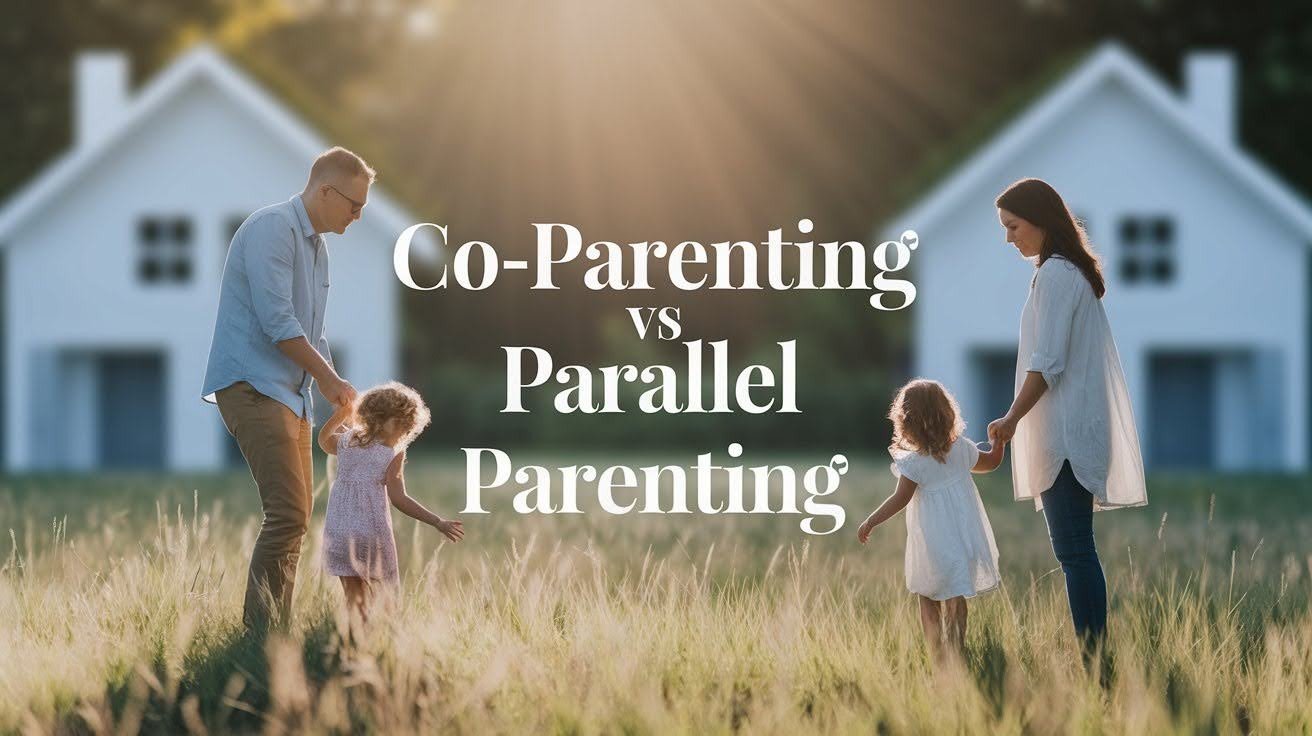You do realize that the holidays are meant to be magical? However, for separated or divorced parents, maintaining everyone’s happiness-especially the children-often feels more like negotiating a diplomatic minefield. If you’ve ever been in a panic.
The problem is that it doesn’t have to be this difficult. Indeed, you may feel as though you’re learning a new language during your first holiday season after a divorce (spoiler alert: you kind of are).
Making a good holiday schedule is a combination of art, science, and survival instinct, whether you’re dealing with alternating years, splitting days, or attempting to figure out how to handle that sporadic Wednesday when school is out but no one prepared for it.
What Is a Holiday Custody Schedule?

A holiday custody schedule is a detailed plan that decides which parent has time with the children during special occasions and school breaks. This schedule works differently from your regular parenting plan and takes priority when holidays occur.
The main purpose is to create clear rules about holiday time-sharing before conflicts arise. Unlike regular custody arrangements that follow weekly patterns, holiday schedules focus on specific dates and traditions that matter most to families.
Holiday schedules override standard parenting time when conflicts occur. For example, if Christmas falls on a regular custody day for one parent, the holiday schedule determines who actually gets that time with the children.
Why You Need a Dedicated Holiday Schedule?

Without a clear co-parenting holiday schedule, simple misunderstandings can turn into major conflicts. Parents may have different expectations about important days, leading to last-minute arguments that stress everyone involved.
Holiday schedules also make it easier to plan travel and visit extended family members. When you know months ahead of time which holidays you’ll have with your children, you can book flights, make reservations, and coordinate with grandparents and relatives.
Children benefit most when they know what to expect during special times of the year. A predictable co-parenting holiday schedule helps them feel secure and look forward to celebrations with both parents without worry or confusion.
Common Ways to Divide Holiday Time Between Co-Parents

The alternating method is the most popular approach for sharing holidays between parents. One parent gets Christmas in even years while the other gets it in odd years, then they switch for other major holidays.
Splitting holidays in half means children spend part of the day with each parent. This works well for local families, but can be challenging when travel is involved or when holidays are short.
Fixed assignments give one parent the same holidays every year. For example, mom always gets Mother’s Day while dad always gets Father’s Day, creating consistent traditions for specific celebrations.
Some families choose to follow their regular visitation schedule even during holidays. This approach works when parents live close together and want to keep things simple.
Which Holidays Should Be Included in Your Schedule?

Include major holidays, special family occasions, and school breaks that are meaningful to both parents and children:
Major Secular Holidays
Christmas and Christmas Eve often require the most detailed planning in any co-parenting holiday schedule. Many families split these days between parents or alternate years to share the magic of Christmas morning.
Thanksgiving typically gets assigned to one parent each year, allowing time for extended family gatherings and travel. The four-day weekend makes it easier to include out-of-town relatives in celebrations.
New Year’s Eve and Day can be combined with winter break planning. Some parents focus on New Year’s Eve parties while others prefer New Year’s Day family time.
Special Occasions and Birthdays
Children’s birthdays deserve special attention in your holiday schedule. Many parents choose to celebrate together or alternate who hosts the main party each year.
Parents’ birthdays can be included to ensure children spend time with each parent on their special day. This helps maintain important family bonds and creates lasting memories.
Mother’s Day and Father’s Day are usually assigned to the appropriate parent. These holidays help strengthen the parent-child relationship and honor the unique role each parent plays.
School Holidays and Breaks
Spring break gives families a chance for longer vacations and special trips. Parents often alternate years or split the week depending on their work schedules and travel plans.
Winter break usually extends beyond Christmas and New Year’s. A good co-parenting holiday schedule addresses the entire break period, not just the major holidays within it.
Summer break requires careful planning since it covers several months. Many parents divide this time into chunks, allowing each parent to plan extended trips or camp experiences.
How Holiday Schedules Impact Your Regular Parenting Plan?

Holiday schedules change the normal flow of your parenting time when special occasions occur. If your regular schedule gives you weekends but Christmas falls on a Tuesday, the holiday schedule decides who gets that time.
Some holidays create longer periods with one parent, especially during school breaks. When Christmas and New Year’s both fall on the same date, children might stay for a week or more.
Extended holiday time can affect the balance of your regular parenting schedule. Many plans include make-up time to ensure both parents get fair amounts of time with their children throughout the year.
Planning Timeline: How Far in Advance to Schedule?

Smart parents start planning their co-parenting holiday schedule during divorce negotiations or custody discussions. Getting these details settled early prevents future conflicts and gives everyone time to adjust.
Building holiday provisions into your original custody agreement saves time and money later. Courts prefer detailed plans that show parents have thought through potential issues before they arise.
The best holiday schedules include flexibility for changing circumstances. As children grow and family situations change, having room for adjustments keeps your plan working smoothly for years.
Expert Tips for Creating Effective Holiday Schedules
Focus on fairness, clear communication, and flexibility to create a holiday schedule that works for both parents and supports your child’s happiness:
- Address holiday arrangements when creating your custody order to avoid future conflicts
- Include specific dates, times, and locations for all major holidays and school breaks
- Build in provisions for make-up time when holidays affect regular parenting schedules
- Ask children about their holiday preferences when age-appropriate and consider their input
- Focus on what creates the best experience for children rather than parent convenience
- Remember that children’s needs and interests change as they grow older
- Plan for special circumstances like family weddings, reunions, or once-in-a-lifetime trips
- Allow opportunities for extended family visits that might require schedule changes
- Be willing to trade holidays or adjust timing when it benefits the children
- Work together to preserve meaningful family customs that matter to your children
- Create space for new traditions that fit your changed family structure
- Respect different cultural or religious backgrounds that might affect holiday celebrations
- Plan for overlapping religious holidays that might create scheduling conflicts
- Establish clear rules about advance notice when one parent wants to travel
- Include backup plans for weather delays, illness, or other unexpected situations
Conclusion
A thoughtful co-parenting holiday schedule turns potentially stressful times into peaceful celebrations that children can truly enjoy. Clear planning removes the guesswork and prevents conflicts that can damage family relationships.
Putting children’s needs first while maintaining fairness between parents creates the foundation for successful holiday sharing. When both parents feel the arrangement is reasonable, cooperation becomes much easier.
Early planning, built-in flexibility, and open communication are the keys to making any holiday schedule work long-term. Don’t forget to use available templates and digital tools to keep everything organized and accessible.
Frequently Asked Questions
How do I create a co-parenting holiday schedule that works for both parents?
Start with major holidays and alternate years between parents. Include specific times and locations. Focus on children’s needs while keeping arrangements fair and practical for both households.
What happens if my ex doesn’t follow our agreed holiday schedule?
Document any violations and try discussing the issue first. If problems continue, contact your family law attorney or request mediation to resolve scheduling conflicts formally.
Can I change our holiday schedule after it’s been set?
Yes, but both parents must agree to changes. Major modifications might need court approval. Always document agreements in writing to avoid future misunderstandings.
How far in advance should we plan holiday arrangements?
Plan at least six months ahead for major holidays like Christmas and Thanksgiving. This gives everyone time to make travel arrangements and coordinate with extended family.
Should holiday schedules include three-day weekends and school breaks?
Yes, include all school breaks and federal holidays in your co-parenting holiday schedule. This prevents confusion and ensures both parents get fair time during extended breaks.








